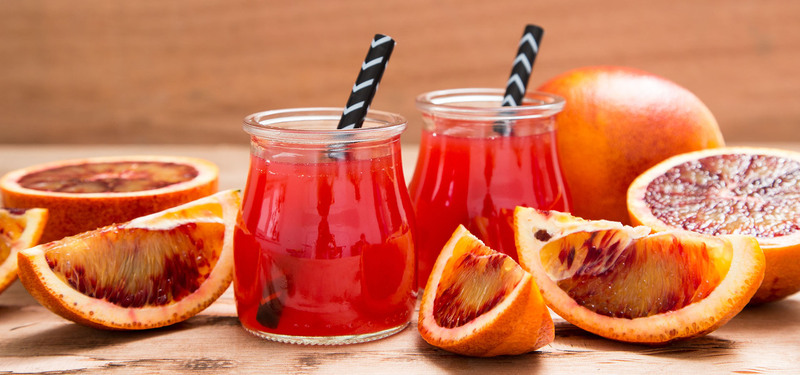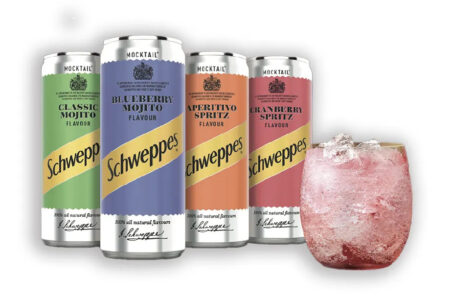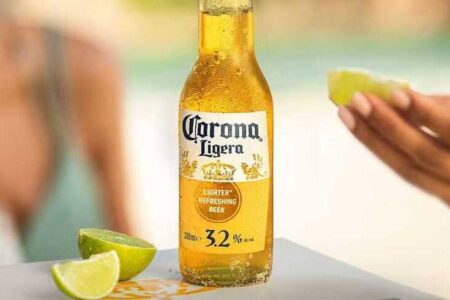Stability studies highlight ‘no proof’ credentials for Lycored’s naturally derived colour ingredients

Lycored has published the results of two-colour stability studies in alcoholic and mocktail beverages, which has found that the company’s GoldHold A Dry and ResilientRed A colours are ready to meet alcoholic and mocktail beverage manufacturer’s needs for naturally derived, stable colours, as well as meeting consumers’ demands for an authentic and clean look.
Evaluating the stability of defined dosages in alcoholic beverages at various alcohol levels (1.2%, 5%, 15%, & 37.5%) over shelf-life, Lycored’s scientists put their lycopene and beta-carotene-based colours to the test to determine dosage of GoldHold A Dry and ResilientRed A required to achieve typical colour in alcoholic beverages (both colours require ascorbic acid for optimal stability).
ResilientRed A was also tested to compare the colour and stability achieved against red cabbage which is typically used in alcoholic beverages.
Highlights of Lycored’s studies included:
- Good stability for GoldHold A Dry at low dosage levels in alcoholic beverages, 5% and less, and very good stability for higher dosage levels in all alcohol levels, 15% or less.
- ResilientRed A has good stability at low dosage levels in 5% or less alcohol in coloured bottles, cans, or sleeved bottles.
- ResilientRed A is ideal for flavours Strawberry, Rhubarb & Strawberry, and Summer Fruits.
- GoldHold A Dry is ideal for flavours mango, pineapple, and lemon.
Commenting on the results, Caroline Schroeder, marketing communications manager at Lycored said: “Maintaining colour stability in any beverage is challenging as pH, light and processing are major disruptors, but it is especially challenging with naturally derived ingredients as you are working within certain parameters instead of the freedom created by those artificial colours developed in a lab.”
“For example, due to pH independence, ResilientRed A can offer uniform colour across various pH levels, whereas anthocyanins such as red cabbage, are dependent upon pH levels to determine shade.
“Odour is also a differentiating factor, especially when considering delicate flavour profiles. Strong odours, like those omitted from red cabbage have the potential to impact flavour, requiring additional material to mask. All of Lycored’s superstable colour range are odourless and tasteless.”
Schroeder continued: “Global consumption of non- and low-alcoholic beverages is growing, with sales of non-alcoholic beverages spiking at 33%, up to $331 million in 2021 (source: Washington Post). As part of this new dietary trend, consumers who choose no or low alcohol are actively looking for better drink options leading them to the growing mocktail and hard seltzer market.”
“To appeal to the masses these ‘no proof’ and low-alcoholic alternatives must be clean label yet have the visual and taste perception appeal of their full calorie, high alcoholic content counterparts. This is challenging food scientists and mixology experts to find colour ingredients that can fulfil the healthy lifestyle logic behind the popularity of low alcohol and mocktail beverages and can handle the necessary processing, storage and shelf-life conditions.”
“Lycored’s naturally derived colours are an ideal first choice for many of today’s most popular beverages because they match consumer expectations around popular flavours and colour,” added Schroeder, concluding: “Non- and low-alcoholic drinks are vying to be top of the beverage market, but they can’t get there unless ingredients are clean, able to withstand intensive processing and assure colour stays true. Our study data supports the switch to lycopene and beta-carotene-based colours for a variety of stable red, pink and golden shades.”
To obtain the full study results visit: https://www.lycored.com/natural-colorants-for-food/beverage/



